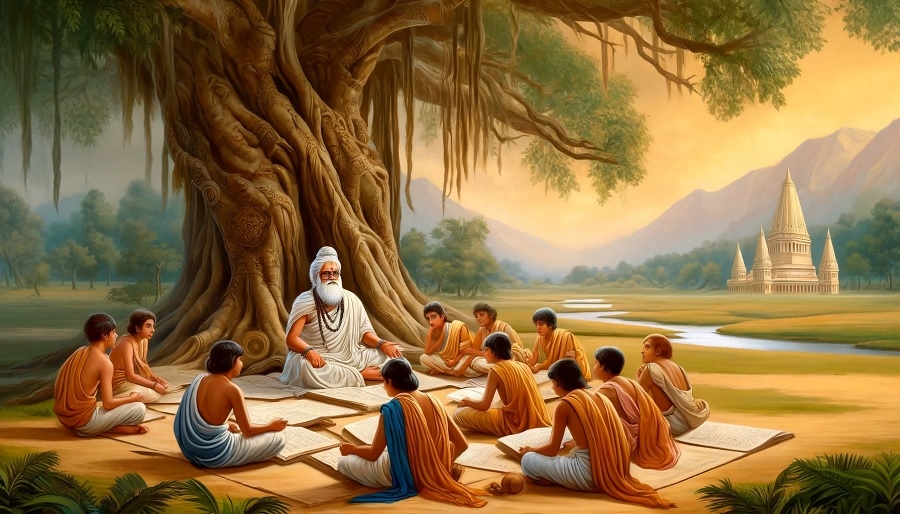Spirit Of Inquiry
| Date :16-Feb-2025 |

By DR BHUSHAN KUMAR UPADHYAYA :
The spirit of inquiry is the soul
of scientific discoveries and
inventions. No society or
community will progress without a
strong tradition of inquiry and
investigation. Spirit of inquiry is
based upon open mindedness
and curiosity. Evidence based
practices are the foundation stone
of the spirit of inquiry.
Theoretical
knowledge must findamatch with
the practical experiences. Reform
and improvement are the sine qua
non of an inquisitive society.
One of the most important
ingredients of the spirit of inquiry
is the healthy traditions of dissent.
Debates and discussions are the
lighthouse of the spirit of inquiry.
Hypothesising new ideas and
analysing the present ones keep
the traditions of the spirit of
inquiry alive. A society which is
bedrocked on the spirit of inquiry
does not believe in blasphemy or
any type of conversion. Research
is a continuous phenomenon.
Dynamism, evolution, exchange of
ideas, critical mindset, etc, are all
the dimensions of the above society. The journey of the spirit of
inquiry begins in the Indian subcontinent with the emergence of
Indus Valley Civilisation.Ahighly
advanced civilisation as it was, it
fosters a high level of multiplicity
in the fields of religious practices
and beliefs. As per the historical
accounts, they used to worship
female and male gods. Animals,
trees, natural forces, etc were also
sacred to them. No dogmatic or
fixed doctrinal commandments are
traceable there. The earliest text,
the Rigveda starts with the hymns
of gods and natural forces. Hymns
achieve more effectiveness in the
rituals of the Yajurveda.
Hymns
and rituals gain rhythm and tone
in the Samaveda.
The seers include many material
and mundane dimensions of
human life in the Atharvaveda.
The journey from the Rigveda to
the Atharvaveda reflects the undying urge of the Vedic sages to
renew and refresh the repository
of knowledge. Then emerged the
six Vedangas in the form of
Siksha, Kalpa, Nirukta, Vyakarana ,
Chhanda and Jyotish. How to pronounceaMantra, how to perform
rituals, how to know the etymology of words, how to use correct
language, how to give rhythm to a
verse and how to calculate movements of planets are the subject
matters of these Vedangas. The
spirit of the inquiry does not stop
here. The texts known as the
Brahmanas, Aranyakas and
Upanishads are the emerging
trends of the Vedic mind. The
churning of knowledge gave rise
to the six systems of Vedic philosophy named Mimansa, Sankhya,
Nyaya, Vaisheshika, Yoga and
Vedant, all describing the material
and divine dimensions of existence in their own manner.
The Buddhist, Jain , Charvaka
and Lokayatana streams of philosophy propounded the truths of
human life in quite different ways.
The Ramayana by the sage
Valmiki epitomises the virtuous
character of Lord Ram for defending the Dharma or his pious duty.
Veda Vyasa composed the
Mahabharata depicting the all
encompassing existential truths of
human life. The immensely rich,
varied and long traditions of
Sanskrit literature, grammar, poetics, dramatics etc are the mirrors
upon which diverse thought
processes are getting reflected.
The Kamasutra of Vatsyayana and
different erotic carvings at many
historical places are the testimonies of freedom of speech.
Besides the traditions and literature quoted above, there are
numerous regional and local traditions, highly rich and fulfilling.
This colourful and immortal journey of Indian traditions has the
engine of inquiry with the fuel of
dissent on the path of open mindedness and steered by debates,
discussions and respectful dissent.

(The writer is Former DG
Police & CG, Homeguards,
Maharashtra)
